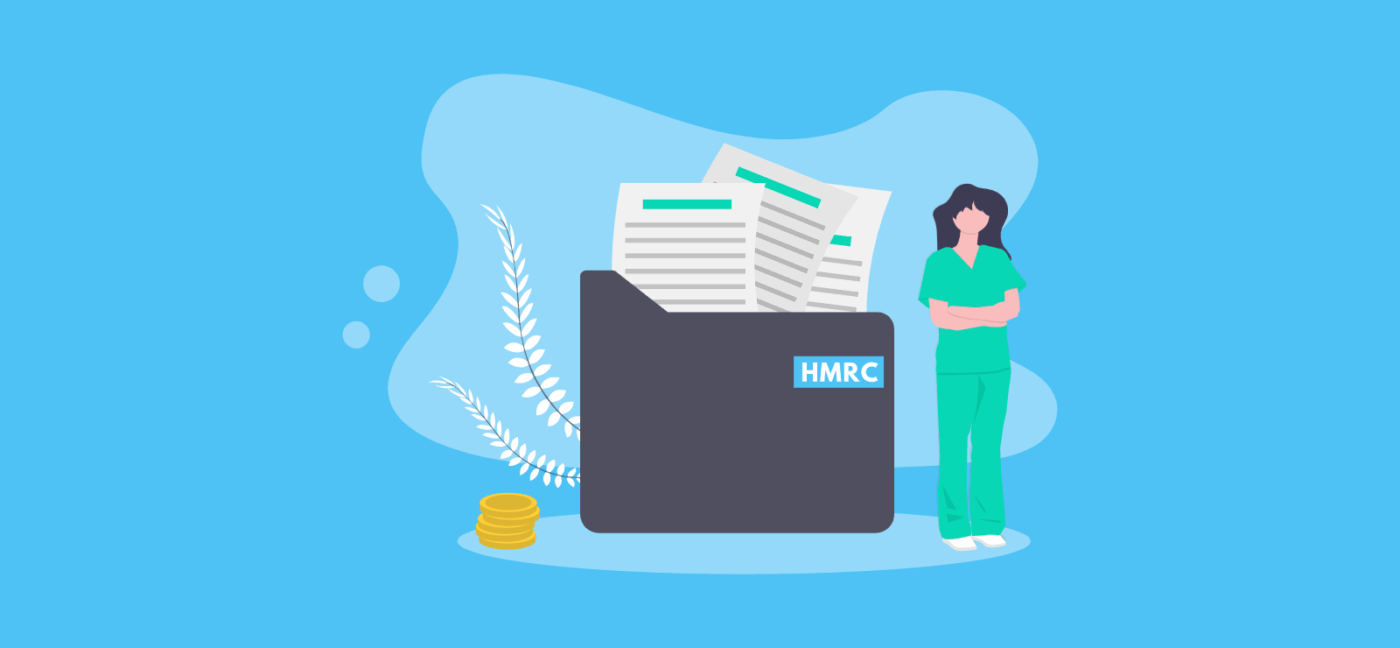

Do Locum Doctors Need to Submit Tax Returns?
It’s only natural that medical professionals working in a locum capacity will have plenty of questions about tax when it comes to their finances. All those years of study and work experience mean there probably wasn’t much time to explore the intricacies of business structures.
Working as a locum doctor can be particularly confusing from a tax point-of-view. You might decide to operate through your own limited company, or simply work via an agency or the NHS. This has an impact on how and when you pay tax on the money you earn from locum work.
To help answer your questions (including the ones you might not think to ask!), read our guide to paying tax and the tax relief available for locum doctors. We also have a separate guide available for bank nurse staff.
What is a locum doctor?
The word locum is actually derived from a Latin phrase meaning ‘place holder’. It refers to the way that locums normally work in temporary vacancies, as and when they’re required
How are locum doctors paid?
This largely depends on how you operate as a locum. Some doctors choose to work through an agency who handles the payment side of things for them. Others will register a business to carry out locum work, and then pay themselves through that depending on what sort of business structure they decide to use.
It’s worth keeping in mind that locum work normally means you’ll only be paid for the hours that you do. You won’t be entitled to annual leave or sick pay as a result of it!
Choosing a business structure; how to operate as a locum doctor
Lots of locums work via an agency or directly for the NHS, so their pay and taxes are taken care of in much the same way that an employer does for staff. They’ll work out your wages each payday, and deduct tax and National Insurance contributions ‘at source’, then pay these deductions on to HMRC for you.
It makes tax very easy, because you won’t need to do anything (beyond checking your payslips, and shouting at them if they get it wrong). You’ll also get the benefit of employer contributions, such as towards your National Insurance or pension. Working for yourself does mean that you’ll need to make your own pensions and savings arrangements.
Despite that consideration, some locum doctors prefer to work through their own business, whether that’s for tax efficiency or just a desire to work for themselves. For instance, you’ll be able to claim tax relief on expenses (which you might not normally be able to do through an employer) as long as they relate solely to the work.
Locum work essentially means that you’re working as a contractor, and there are lots of options available in this respect. If you go down this route, then the business structure you choose will have an impact on how (and when) you pay tax.
Sole trader
Setting up as a sole trader means that you are the business, so there’s no legal separation between your personal and business finances. All the business’s assets and liabilities are directly attached to you, but you also get to keep all the profits for yourself.
Working as a sole trader locum has its pros and cons. The tax and reporting side of things is simple to navigate and operate. A potential negative is that you’re personally and wholly responsible for any trouble the business might find itself in.
Limited company
One of the main benefits of setting up as a limited company for locum work is that you can appoint yourself as a director. This means you can pay yourself through dividends or salary, or a tax-efficient combination of the two.
Do locum doctors need to worry about IR35?
Contracting as a locum doctor through your own limited company does mean that you’ll need to have IR35 on your radar. This legislation sets out to deal with ‘off payroll working’, where someone is essentially an employee in all but name, whilst taking advantage of the tax efficiency offered by your own limited company.
In a nutshell, being ‘inside IR35′ means that you’re being treated by your client(s) in the same way they treat their full-time employees. This means that what you earn will be subject to National Insurance and Income Tax and you’ll be deemed a ‘disguised employee’ in the eyes of HMRC.
Applying this to locum doctors specifically: if you regularly work within the same practice and under the same hours, for extended periods of time, HMRC may deem your business as ‘inside IR35’.
The practice you’re working for will then pay your invoices after making the necessary deductions, in the same way they would a PAYE employee. It’s then down to you to ensure that you don’t end up being taxed twice.
It’s worth keeping in mind…
- Are you working for a specific practice on a significantly regular basis?
- Don’t accept anything that might be considered an employment benefit from any of the practices you work for. This includes things like sick pay or holiday pay.
- If you must take time off work and therefore need somebody to fill your place temporarily, make sure you’re the one who enlists your replacement. Your substitute should offer the same exact services you were delivering and shouldn’t be somebody who already works on a long-term basis for that practice. You should then also be responsible for issuing their pay.
Does a locum GP need to do a tax return?
Yes, a locum doctor will need to submit a tax return in the same way any other self-employed professional would. How and when this needs to happen depends on how your business is legally structured.
For instance, if you register as a sole trader, you will need to make submissions for Self Assessment, and pay Income Tax and National Insurance on your profits.
If you register as a limited company, you will need to submit Company Tax Returns and pay Corporation Tax. As a director of a limited company, you are also required to submit your own separate Self Assessment, as your earnings are separate to that of the company’s.
Deducting allowable expenses will help lower your tax bill, however your business is set up.
Falling behind with these regulations not only risks you missing deadlines and receiving penalties from HMRC, but it also puts you at risk of overpaying tax and giving away money that could still be in your business bank account.
Learn more about our medical accounting services for doctors, dentists, nurses, and other medical professionals. Talk to one of the team on 020 3355 4047, and get an instant online quote.
Want to learn more?
Subscribe to our newsletter to get accounting tips like this right to your inbox

Read more posts...

A Guide to Employer’s National Insurance
28th February 2026It’s important to look beyond the headline salary and consider the full cost of employment when you hire a new employee. Expenses…
Read More
February 2026 Client of the Month: Accountancy Hub
27th February 2026This month we spoke to Hannah, founder of Accountancy Hub. Accountancy Hub | Instagram Hey Hannah! Tell us about your business…
Read More
Paying Yourself a Salary from Your Limited Company
26th February 2026Being a director means you’re legally separate from your limited company even if you’re also the owner, so you’ll need to decide…
Read MoreConfirm Transactions
The number of monthly transactions you have entered based on your turnover seem high. A transaction is one bookkeeping entry such as a sale, purchase, payment or receipt. Are you sure this is correct?
Please contact our sales team if you’re unsure
VAT Returns
It is unlikely you will need this service, unless you are voluntarily registered for VAT.
Are you sure this is correct?
Call us on 020 3355 4047 if you’re not sure.
MTD IT Quarterly Updates
Your final, end of year MTD Income Tax submission is included in your fee, without this add-on service.
We would recommend you submit the quarterly updates yourself using Pandle or alternative bookkeeping software.
However, if you would prefer us to submit these quarterly updates for you, there is an additional fee of £35.00 per month.
Call us on 020 3355 4047 if you’re not sure.
Bookkeeping
You will receive our bookkeeping software Pandle for free, as part of your package.
You can use this to complete your own bookkeeping, or we can provide a quote to complete your bookkeeping for you.
Please select and option below:
Call us on 020 3355 4047 if you’re not sure.

